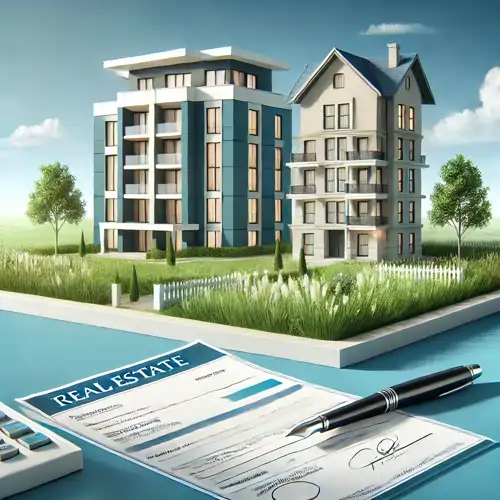Buying an apartment in Spain is a serious investment and an important life decision. In addition to the obvious advantages - sea views, a mild climate and a European standard of living - it is worth remembering the risks associated with the legal clarity of the property. In this article, we will analyze the main pains of the buyer and offer solutions that will help to avoid problems after the conclusion of the transaction.
Key pains when buying property in Spain
-
The probability of hidden encumbrances or debts from previous owners, which can become your problems.
-
The risk of unexpected heirs appearing, especially if the apartment was transferred by inheritance.
-
Lack of documentation: absence of a Building permit (building permit) or First/second occupancy license (occupancy license) can lead to litigation.
-
The absence of a Foreigner Identification Number for foreign buyers complicates the process and can scare off potential landlords if you plan to rent out the property.
-
The probability of buying "an apartment without a Cedula" (without a certificate of habitability) and facing the impossibility of legally using the housing.
-
Difficulties in obtaining a mortgage if the apartment documents do not meet bank requirements.
Solutions: how to check the legal clarity of an apartment
1. Collect basic documents
The first thing to do is to request the following documents from the seller or agent:
-
Nota Simple Informativa - an extract from the Property Registry, which allows you to find out the current owner, check for arrests, mortgages, pledges and other encumbrances.
-
Property Tax - receipts for payment of the annual property tax. It is best to ask for the last paid receipt and, if necessary, a certificate of absence of debts for previous years.
-
Certificate of being up to date with community fees - a document confirming that the seller has no debts to the condominium (homeowners association).
-
Condominium bylaws. If you are buying a home with common areas, it is important to familiarize yourself with the rules of residence and possible restrictions, such as a ban on short-term rentals.
-
Building permit and First (or second) occupancy license. For new housing, this is a guarantee of the legality of construction and compliance with sanitary standards.
-
Energy performance certificate. Without it, the transaction cannot be formalized before a notary, and difficulties may also arise in the further operation of the housing.
2. Check inheritance aspects
When buying property received by inheritance, it is necessary to additionally find out:
-
Whether all heirs agree with the sale, whether they have any claims to the property. If someone has not expressed explicit consent or has not signed a waiver of inheritance, the transaction may be challenged in the future.
-
Whether there are minor children among the heirs. For transactions with their participation, the permission of the guardianship authorities is required.
-
Whether the testator has outstanding debts (including litigation or enforcement proceedings). Possible financial claims of creditors may also fall on the new property.
3. Make sure there are no tenants or "squatters"
Even if you become the legal owner, there is a risk that tenants or illegal occupants ("squatters") continue to live in the apartment.
-
Tenants with an official contract have the right to stay until the end of the term of the lease. If the seller has entered into a long-term contract, you, in fact, assume his rights and obligations.
-
Illegal occupants do not pay for housing and are evicted only through the court. This can drag on for months and even years.
4. Verification of new housing from a developer
When buying property in the primary market, it is important to request:
-
Building permit, confirming that the house was built within the framework of the law.
-
Developer's insurance and a guarantee for a certain period. This will help if hidden defects in the construction are discovered.
-
First occupancy license, as well as a certificate, confirming the compliance of the house with construction and sanitary standards. Often this document is called Cédula de habitabilidad, and without it, the connection of utilities may be refused.
5. Documents in case of a resale purchase
If you are buying a home in the secondary market, additionally check:
-
Whether the previous owner has any debts to the homeowners association or for utility bills. These debts can be transferred to the new owner.
-
Up-to-date data in the cadastral register: area, layout, address, purpose of the property. Compare them with the real situation and the information from the Nota Simple Informativa.
-
Title documents for the owner: sales contracts, donation or certificate of inheritance. Make sure that the seller is the sole owner; otherwise, the consent of the other co-owners will be required.
Additional security measures
Legal verification of the property
If you do not have the time or sufficient experience, you can order a professional legal verification of the property. Many large banking services and real estate agencies offer this service. Experts analyze all documents for the apartment, check possible lawsuits, encumbrances and issue a legal opinion.
Conclusion of the transaction at the notary
The Spanish notary is obliged by law to verify the legal clarity of the transaction before registration. If inconsistencies or a lack of important papers are found, he has the right to suspend the process. This mechanism protects both parties, so you should not neglect the careful preparation of documents before visiting the notary.
Conclusion
Checking the legal clarity of an apartment in Spain is a crucial step that cannot be skipped. Collect the necessary documents, pay attention to inheritance nuances and the registration of housing from the developer. If you feel that you do not have enough knowledge, seek professional help. This way you will save yourself from lengthy lawsuits, financial losses and stress.








